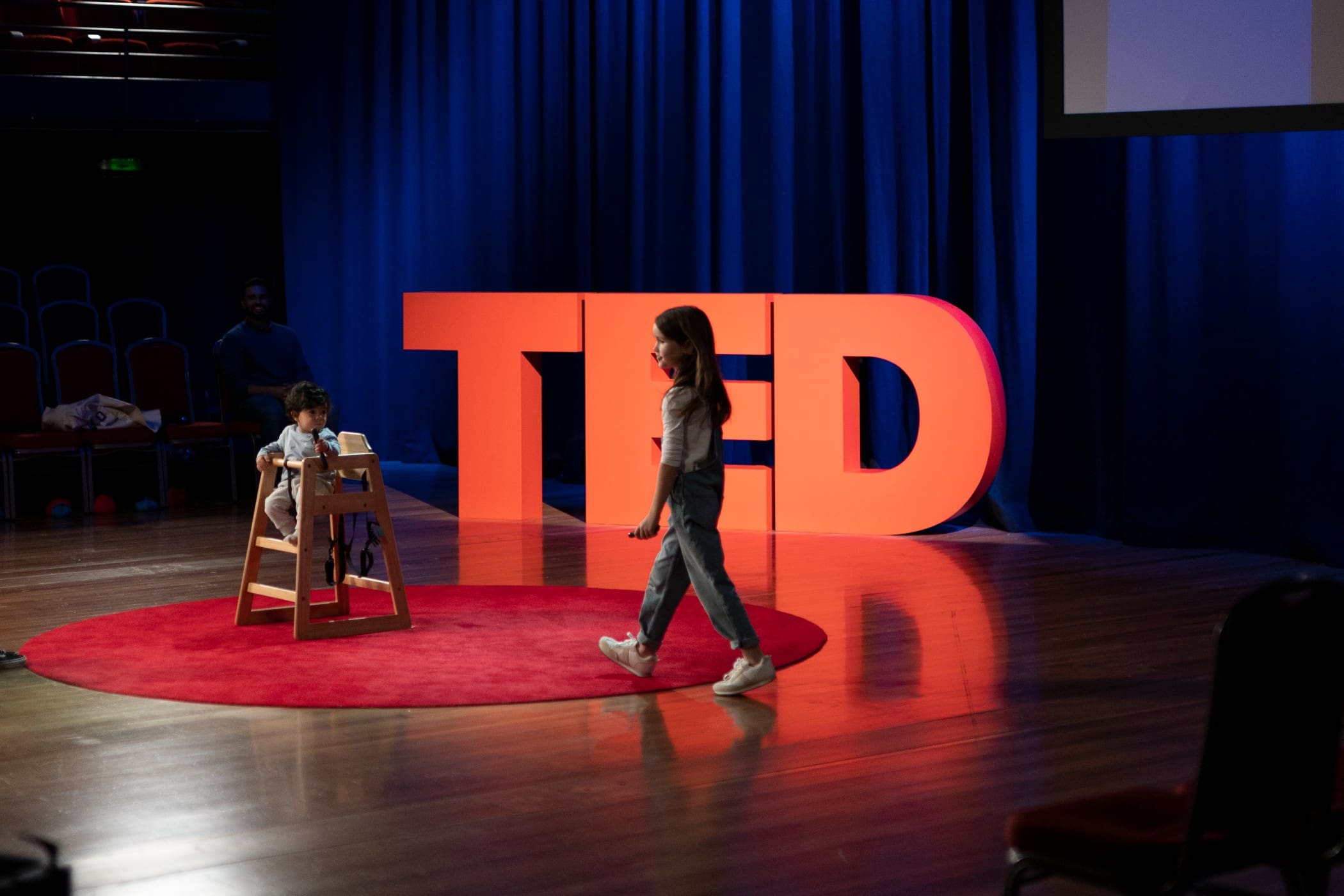Hello, I’m Dr. Norman Swan. What you’re about to watch is a TED Talk, like you’ve never seen. The Minderoo Foundation’s thrive by five initiative in partnership with TED, is all about spreading the understanding, about how important the first five years of life are and the extraordinary findings of neuroscience research into brain development.
This has always been an interest of mine since I trained in paediatrics before becoming a broadcaster and journalist.
Molly is one of the youngest TED speakers ever, and will take you on a journey, which gives a very practical approach to the early years.
Dr Norman Swan, Physician and Journalist
TED Talk by MollyWright
Introduction by Molly about a Childs Brain Development
- What if I was to tell you that a game of peekaboo could change the world? Sounds impossible, right? Well, I’m here today to prove it’s not. Hi, I’m Molly, and I’m seven. And this is my little friend, Ari. Say hi, Ari! Hi. And this is my neighbour, Amarjot. He has to take Ari away now to get ready for our experiment. But don’t worry, they’ll be back. My talk today is about some powerful things you grown-ups can do that shape us as children and the adults we become. How do I know? Because my parents and people around me did them early and often. We now know just how important the first five years are for our health and development, especially our brains. So, let’s talk more about our brains. The blue bag is the rough size and weight of a healthy baby’s brain at birth. The red one is a baby’s brain after the first year. It almost doubles in volume. And by my age, it’s almost 90% the volume of an adult brain. Our brains develop faster in our early years than at any other time in our lives. It can create up to one million neural connections every second. But we need your help. Scientists call it serve and return. That’s just a grown-up way of saying connect, talk, and play with us. And here’s the really big news. Amarjot, Ari, you ready?
- [Amarjot] Ready.
- [Molly] Copycat games build imagination and empathy.
- And pfft.
- Pfft .
- Naming games build vocabulary and attention.
- Daddy, Ari. Daddy, Ari.
- And games like peekaboo, actually build memory and trust.
- Ah, peekaboo!
Explanation of Demonstration
- Each time you talk to us, play with us, make us laugh, it not only builds and strengthens our relationships and mental health, it actually teaches us some of the most important life skills. Interactions early and often matter. Take it from me, the seven-year-old up here, talking about brain science. Okay, now let’s see what happens when the connection is taken away. So now he’s trying to get his dad’s attention again. He’s reaching out like, “That was fun, why have you stopped?” I know it’s important for adults to use their devices sometimes, but kids are hardwired to seek out meaningful connections. Not receiving them causes confusion and stress. Okay, Amarjot, please re-engage.
- Ah, there’s Ari.
Conclusion by Molly of the effect Play has on a Child’s Brain
- Now, what if our whole childhood was like that last 30 seconds? How hard it would be for a child to feel calm, to feel safe, to learn to trust anyone, and the lifelong impact that would have. That makes me feel sad. Ari only reacted the way he did and recovered so quickly, because the connection between him and his dad is usually so strong. The positive relationships with the grownups in our lives gives kids the confidence we need to try new things, to explore, and to be a kid. So please try to remember the most special period for our development is the first five years, starting from inside Mummy’s tummy. What’s something really impactful you can do? Serve and return. And when? Early and often. Imagine the difference we could make if everyone everywhere did this. To us, to children, it’s so much more than just a game. It’s our future. Thank you. See, peekaboo really can change the world!
End note by Norman Swan
- Amazing, wasn’t it? I hope you enjoyed Molly’s talk. Now, there’s a terrific free parenting app, called Bright Tomorrows, that’s an additional source of information and support for you. Underpinned by the latest child development research, Bright Tomorrows app provides over 1,000 tips to turn everyday moments into brain building opportunities. It’s free to download from the App Store or Google Play, and can help you and your child in the days and years ahead.





